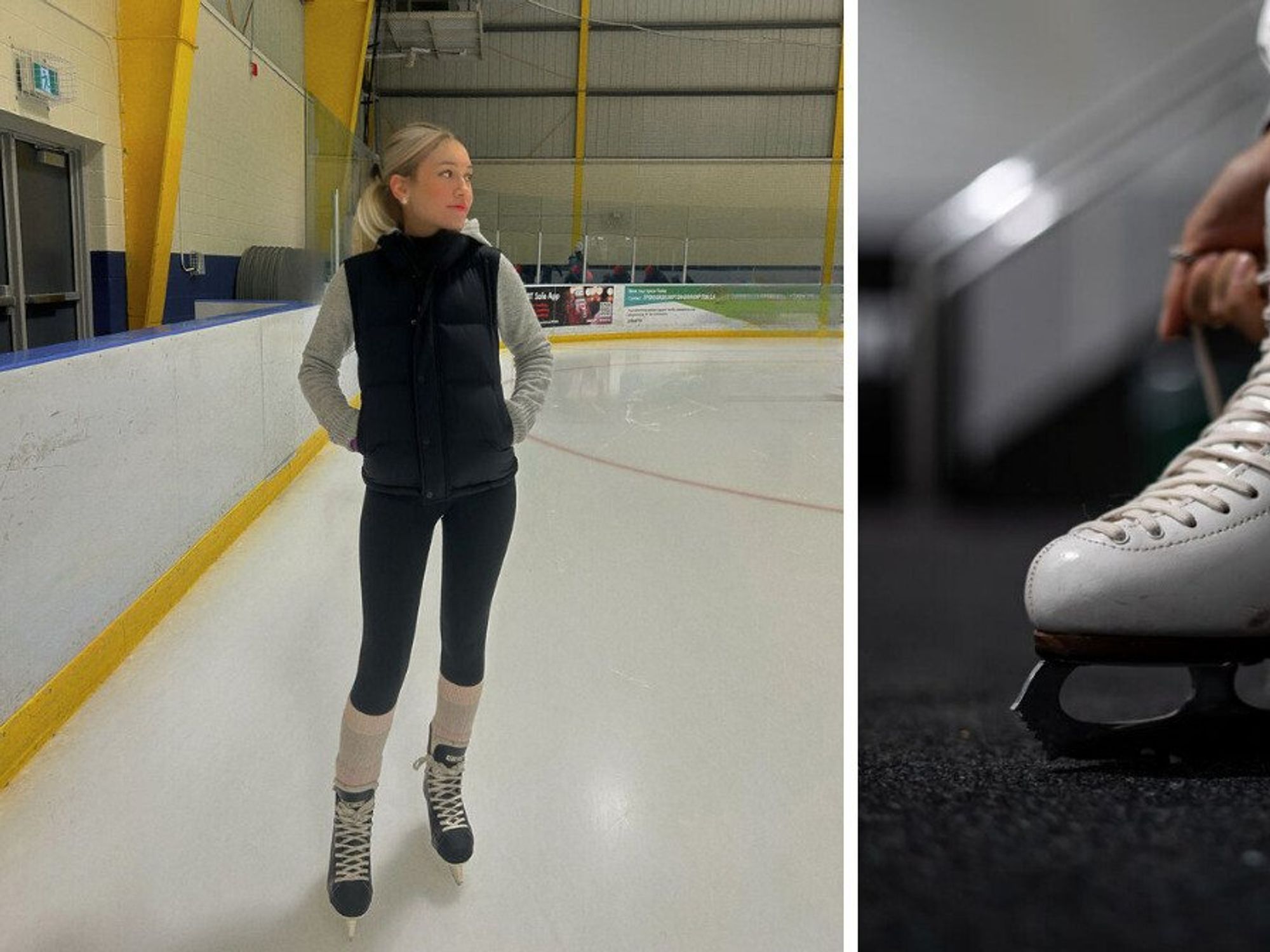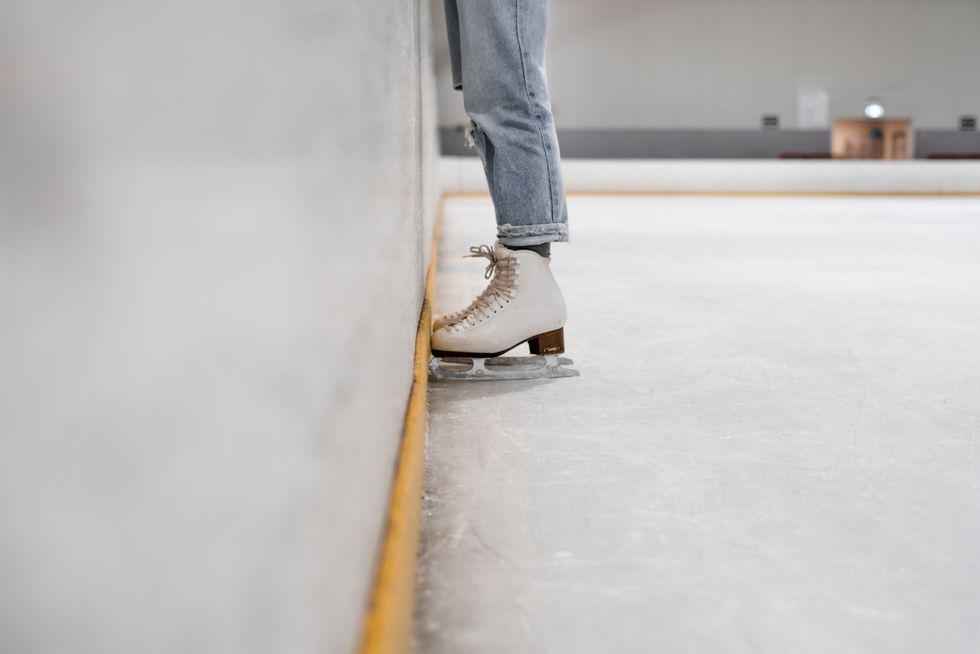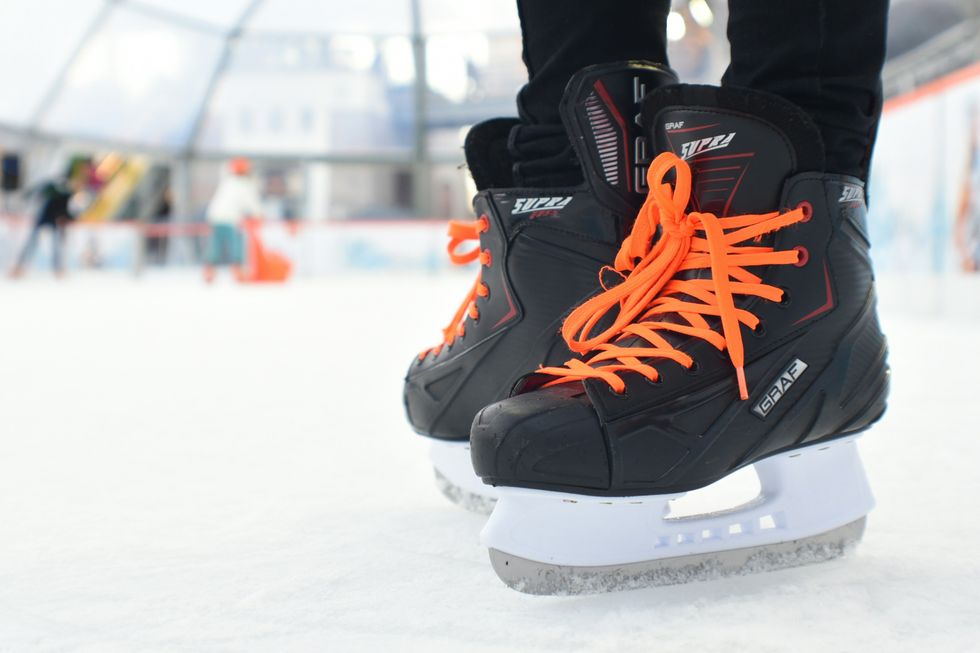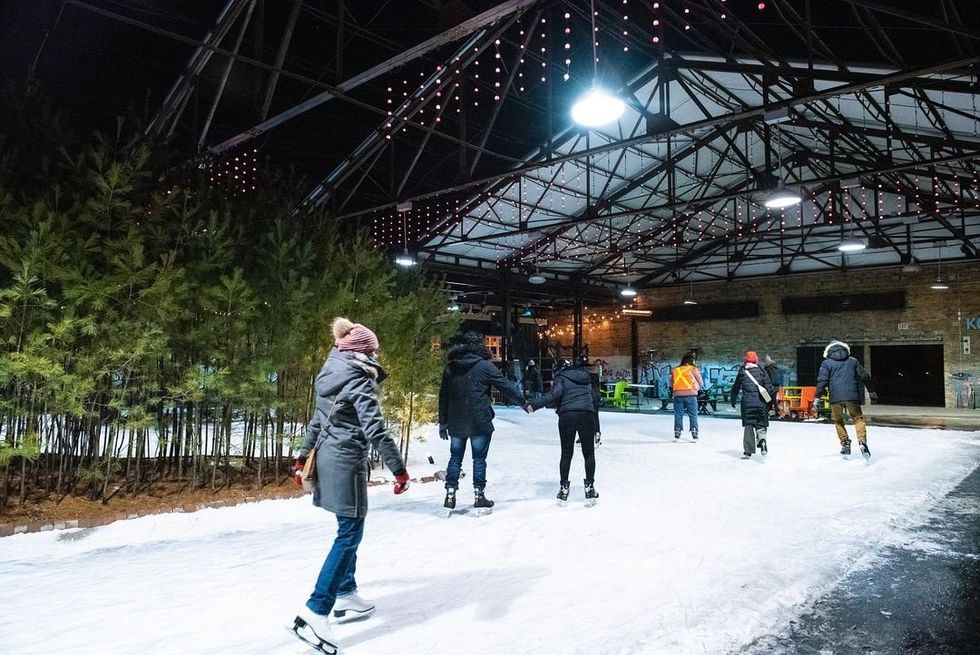
Ok don't judge me — yes, I'm Canadian and for most of my life I didn't know how to skate. But I recently changed that by taking skating lessons and learning the basics of ice skating, and you can too.
I started ice skating about a year ago, with the goal of becoming comfortable enough on the ice that I could skate on an outdoor rink where there isn't anything to hold on to (as opposed to an arena where you can hang onto the boards of the rink if you really need to).
I've since accomplished this by taking lessons and practicing at my local rink, and have changed my goals from learning the basics to learning how to figure skate (a whole other skill).
If you're an adult looking to learn how to ice skate, know that it's never too late — you can start at any age and be able to enjoy the classic Canadian pastime.
If you're looking to take adult skating lessons and aren't sure where to start, here are some tips and advice from someone who recently went through the process.
What you need to start skating

First off, you'll need some gear before you can start skating.
You'll probably want to start with a pair of skates. I recommend getting a used pair if you can, at least at first, as brand-new skates can be more expensive and may need breaking in.
Play It Again Sports is a great place to start, with locations all over the country and online shopping available. You can find both used and new skates here and even sell them your own used sports gear.
Other stores where you can find skates include the usual gamut of sports stores in Canada, like Sport Check and Decathlon, as well as department stores like Walmart and Canadian Tire.
Besides the actual skates, if you're taking formal lessons, you'll also likely be required to wear a helmet. Even if you aren't required to do so, I'd recommend wearing one when skating to protect your head in case you fall.
While it's not recommended by most classes, you may also want to look into some kind of protective padding, such as elbow pads, knee pads and padded skating shorts, to protect against falls on the ice.
From someone who's badly hurt her tailbone by falling on the ice, if you get one thing, I'd recommend padded shorts. Not only do they provide some cushioning but I find they also make me less worried about falling when I'm on the ice.
You can find them at specialty skate stores, sports stores, or on Amazon. I'd also recommend getting a skate bag — even just a cheap one — to carry around your skates and equipment.
Finally, you'll also want to have some gloves or mittens, warm socks that go above your skate boot (to avoid friction) and some warm clothing for skating in.
Should I get hockey skates or figure skates?

Hockey skates are usually recommended for beginner skaters, as they provide more ankle support and are said to be easier to learn on, compared to figure skates. Figure skates are also heavier blades than hockey skates, so take that into consideration when deciding which kind to use.
However, if your end goal is to become a figure skater, by all means, start with those!
Where to take skating lessons

You may not realize that there are tons of places that offer adult skating lessons, meaning you can learn with other adults who are at the same level as you.
You can find skating lessons at your local community centre (register with your city to get started), Skate Canada, which has clubs all over the country, and through local skating clubs.
If you're in Toronto, you can take lessons through the City of Toronto, at one of the many skate clubs in the city, and even at the Evergreen Brick Works.
What to know about learning to skate as an adult
As for what to expect for your first time skating, if you've never been on the ice, it'll definitely take some getting used to. For me, it had been more than a decade since I had last skated when I started taking lessons again, and getting comfortable even just moving slowly on the ice without the aid of the arena boards took some time.
Here are some other things to keep in mind as you start learning:
You're probably going to fall — and that's OK! Your skating instructor will teach you how to fall so that you don't hurt yourself on the ice (a bruised tailbone is not fun).
That said, you're still going to fall and it may be embarrassing, but that's how you learn! If you're taking a beginner's skating class, you probably won't be the only one.
It might take a while to get comfortable being back on the ice. I thought skating would be like riding a bike in that it would just easily come back to me after all these years. It did not.
I was surprised that there didn't seem to be much muscle memory with skating, in my case at least. I essentially had to relearn how to do it, starting from scratch.
This is to say that if you skated years ago and think it'll be easy to get back on the ice, that might not be the case.
There may be people younger than you learning at the same time. It can be hard not to compare yourself to younger skaters who may seem to be doing so much better than you. One thing to remember is that skating is usually easier to learn as a child (you don't have the fear you develop when you grow older of falling, generally failing, etc.), making it easier to give it your all.
Don't let it discourage you though. It's never too late to start, and you can only progress.
It's fun! Skating is a great way to exercise (trust me, take a few lessons and you'll probably feel the burn) but it's also just plain fun. Gliding across the ice, your hair pushed back by the breeze is an exhilarating experience and, for me, a total mood booster.
Once you do learn how to skate, you don't need to stick to indoor rinks and arenas — you can slap on your skates and glide across outdoor rinks, frozen trails and iconic skateways like the Rideau Canal.
Whether you want to eventually take up hockey or figure skating or just be able to glide across the ice, taking skating lessons as an adult is something I highly recommend.
Now, I love to skate — years after I basically gave it up. If I can do it, so can you.
I'm A Canadian Who Just Learned How To Skate — Here's What To Know About Starting As An Adult
Source: News Article Viral


0 Comments